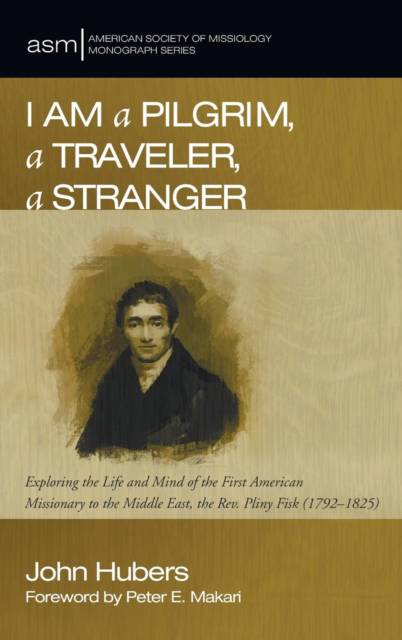
- Retrait gratuit dans votre magasin Club
- 7.000.000 titres dans notre catalogue
- Payer en toute sécurité
- Toujours un magasin près de chez vous
- Retrait gratuit dans votre magasin Club
- 7.000.0000 titres dans notre catalogue
- Payer en toute sécurité
- Toujours un magasin près de chez vous
I Am a Pilgrim, a Traveler, a Stranger
Exploring the Life and Mind of the First American Missionary to the Middle East, the Rev. Pliny Fisk (1792-1825)
John Hubers
53,45 €
+ 106 points
Format
Description
In this book--part biography, part critical analysis--John Hubers introduces us to a man whose pioneering ministry in the Ottoman Empire has gone largely unnoticed since his memoir was penned in 1828, three years after his death in Beirut, by a seminary colleague. His name was Pliny Fisk, and he belonged to a cadre of New England seminary students whose evangelical Calvinism led them to believe that God was opening up a new chapter in the life of the Church that included an aggressive evangelism outside the borders of Christendom. Fisk and his friend Levi Parsons joined that effort in 1819 when they became the first American missionaries sent to the Ottoman Empire by the American Board of Commissioners for Foreign Missions. Hubers's intent is to show the complexity of Fisk's character while examining the impact his move to the Middle East made on his perceptions of the religious other. As such, this volume joins a growing body of literature aimed at providing critical, historical, and religious context to the often checkered history of relations between American Christians and Western Asian peoples.
Spécifications
Parties prenantes
- Auteur(s) :
- Editeur:
Contenu
- Nombre de pages :
- 228
- Langue:
- Anglais
- Collection :
- Tome:
- n° 30
Caractéristiques
- EAN:
- 9781498283007
- Date de parution :
- 29-09-16
- Format:
- Livre relié
- Format numérique:
- Genaaid
- Dimensions :
- 152 mm x 229 mm
- Poids :
- 480 g

Les avis
Nous publions uniquement les avis qui respectent les conditions requises. Consultez nos conditions pour les avis.






